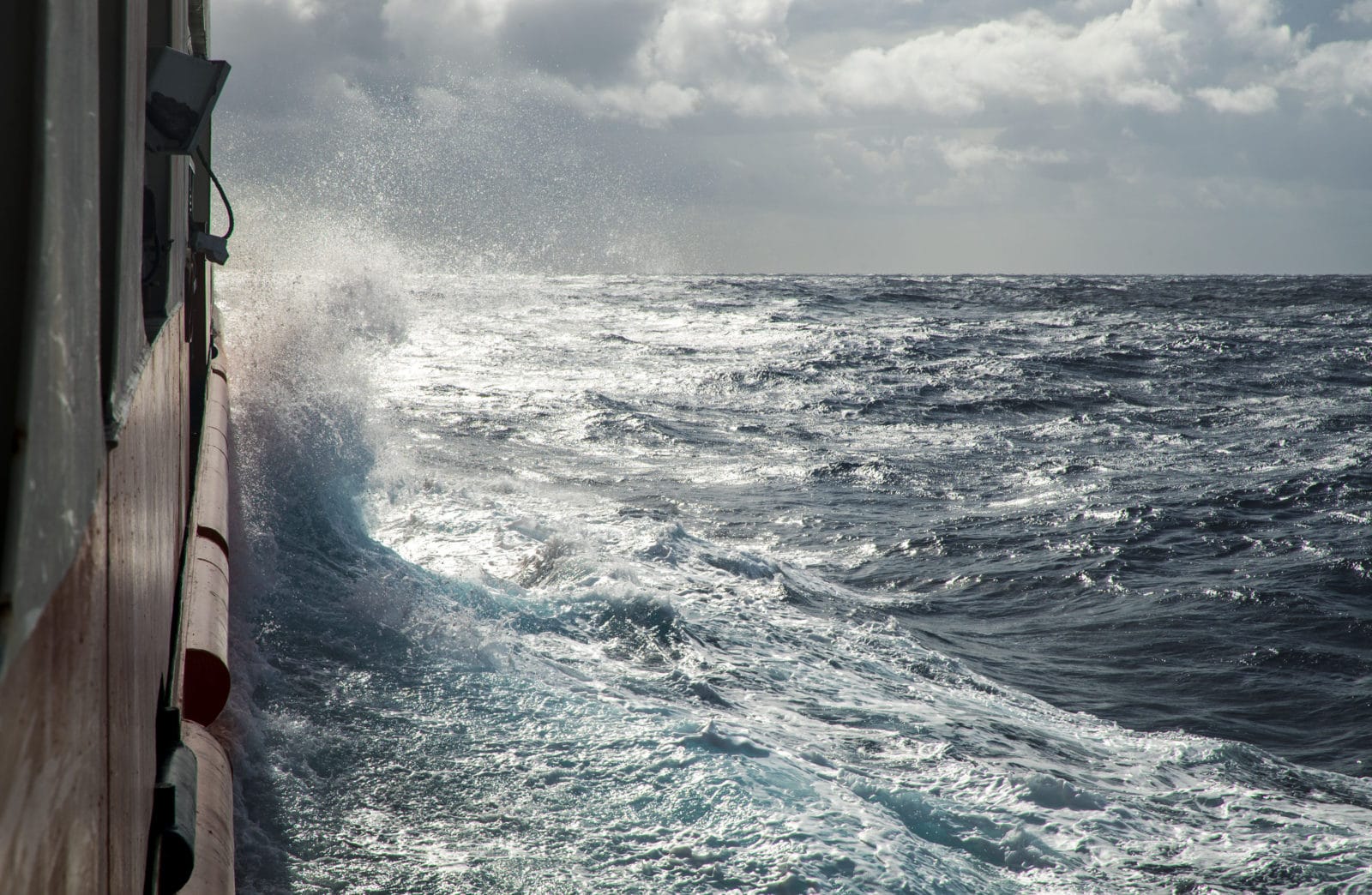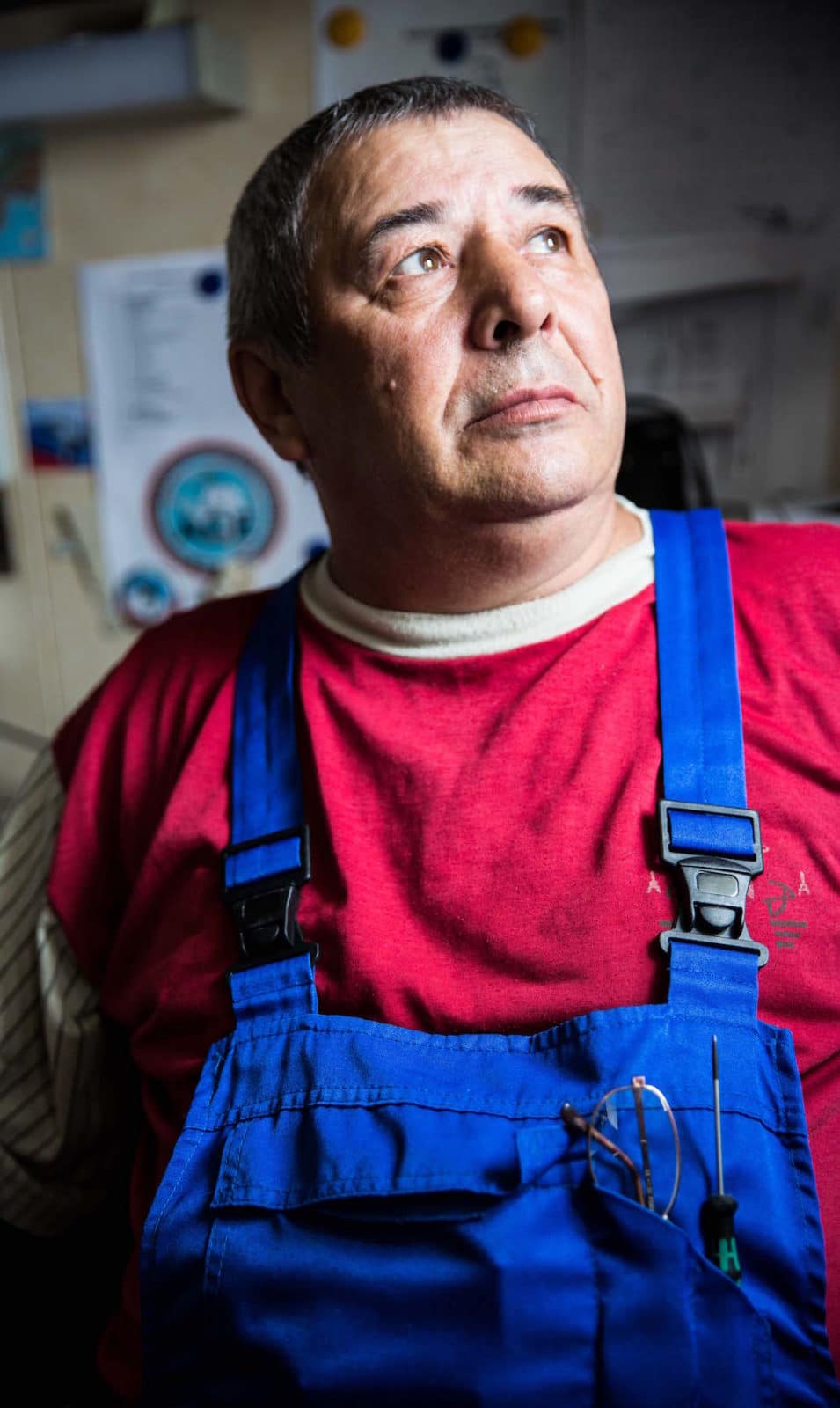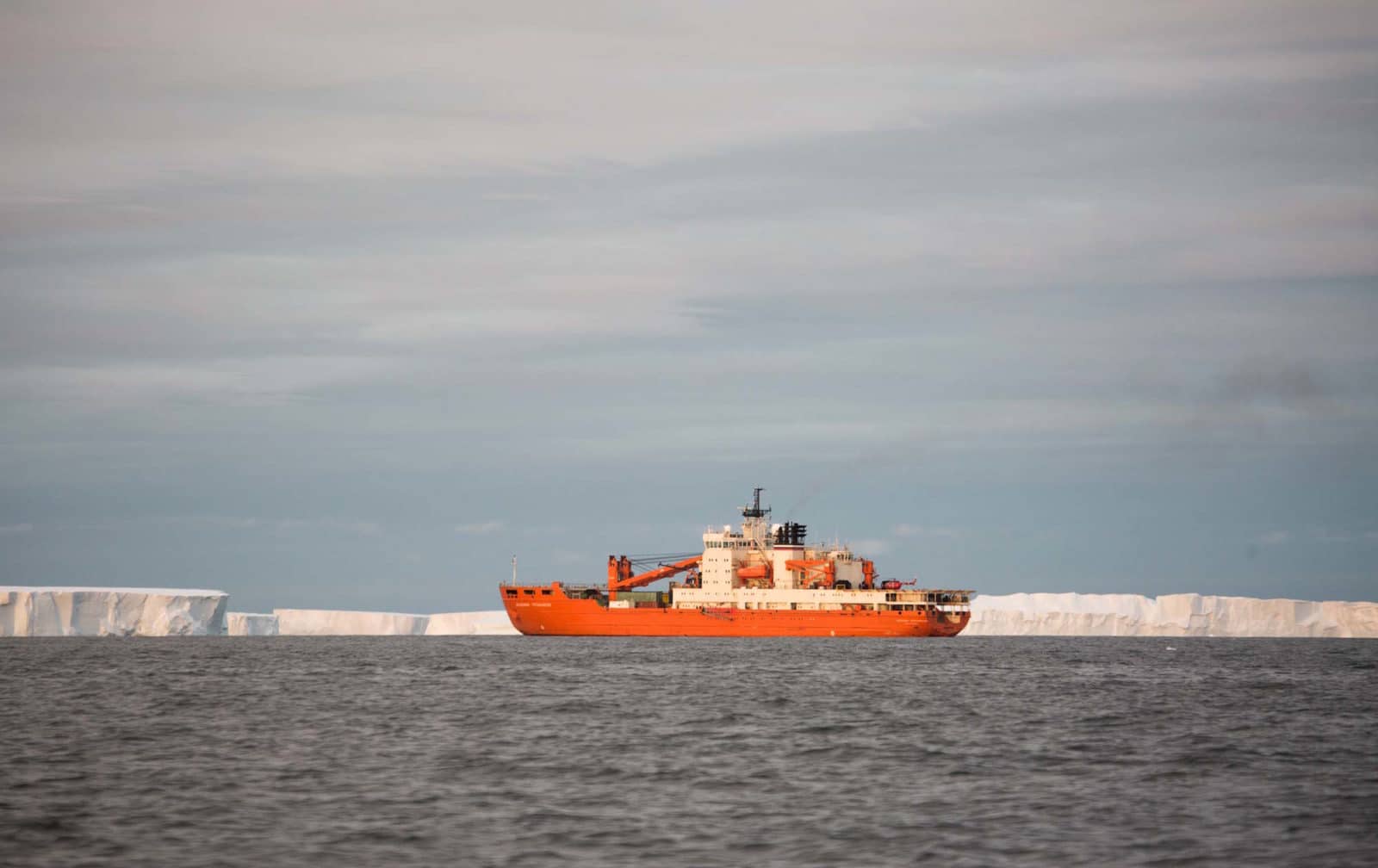By Eric Hoesli, EPFL professor
Par Eric Hoesli, professeur à l’EPFL
What’s his passion? Mushrooms. Not what you’d expect from a sailor. Valeri Mikhailovitch Chelukhov knows of a secret spot, a little island in the wetlands south of Arkhangelsk that takes a two-hour train ride and four-hour walk to reach – but don’t tell anyone. Whenever he goes there, he comes back with a sackful of mushrooms. The thought of it brings a smile to his round, jocular face.
Sa passion? Les champignons. Plutôt curieux pour un matelot. Valeri Mikhailovitch Chelukhov a son coin secret, une petite île dans les marais à deux heures de train et quatre heures de marche au Sud d’Arkhangelsk, mais ne le répétez à personne. Quand il s’y rend, il en revient avec une hotte remplie à ras bord. Rien que d’y penser, un sourire traverse son visage rond de chic type.
He doesn’t often indulge his passion, of course. In the past five years, the head electromechanical engineer on the Treshnikov has been off the boat for only 70 days. He’s surely the most seasoned member of the crew, with 45 years of experience and counting. It all began in 1972: having excelled at his naval studies, he decided to join Russia’s Northern Fleet, covering Arkhangelsk, the Arctic and the ports of eastern Siberia and the Kamchatka. “At that time, the North was really popular. Things were happening there, the government was pouring resources into the region and it was where everyone wanted to be.” Today, it upsets him to see the abandoned ports, rusty cranes and dilapidated buildings in the Great Russian North. “It’s worse than that, I feel hurt.” He adds: “At the time, it seemed like the government and politicians cared about what happened to the people and the country. But since the end of the Soviet Union, money is the only thing that counts. It’s frightening.”
Les champignons, ce n’est pas si souvent, notez bien. Le chef électro-mécanicien du Treshnikov compte 70 jours hors du bateau sur les 5 dernières années. Et celui qui est sans doute le doyen du bord a 45 années de marine au compteur. C’est dire. Tout a commencé en 1972 : sortant avec brio de ses études navales, le jeune Valeri choisit de s’engager dans la flotte du Nord. Arkhangelsk, l’Arctique, les ports de Sibérie orientale et du Kamtchatka. « A l’époque, se souvient-il, le Nord avait la cote. C’est là que cela se passait, l’Etat mettait les moyens et tout le monde voulait y aller ». Quand il voit aujourd’hui les ports désertés, les grues rouillées et les bâtiments en ruines du Grand Nord russe, il en a mal au cœur. « Pire, ajoute-t-il, je me sens blessé ». « Il me semble qu’à l’époque, l’Etat, la politique avait le souci de ce qui arrivait aux gens et au pays. Mais depuis la fin de l’Union soviétique, il n’y a plus que l’argent qui compte. C’est effrayant ».
Is Valeri a communist himself? The thought of it makes him laugh. “I never wanted to join the party. Maybe because I saw too many people in it who shouldn’t have been there.” Still, being a sailor in the Soviet fleet, he couldn’t help but have a soft spot for the hammer-and-sickle flag. “I remember one day in Santos, Brazil, a Portuguese sailor pulled me aside gently. ‘You’re a communist and I’m an anarchist’, he said, ‘but we’ll start a revolution together!’ And we both laughed.”
Un communiste, le chef des electro-mecanos? L’idée le fait rigoler. «Je n’ai jamais voulu adhérer au parti. Peut-être parce que j’ai vu trop de gens dans le parti qui n’auraient jamais dû y être». Mais être marin dans la flotte soviétique, c’était porter un peu avec soi le drapeau rouge frappé de la faucille et du marteau. «Je me souviens un jour à Santos, au Brésil, un marin portugais m’a pris gentiment à partie. Tu es communiste, il m’a dit, je suis anarchiste, mais on fera la révolution ensemble! Et on a ri tous les deux».
The Soviet navy was a whole other world. On board, the captain, a professional, was constantly accompanied by a ‘first assistant’ who really served as the political commissar. He monitored the crew’s behavior and on-board discipline, and he made sure the sailors did their country proud in foreign ports of call. “We could only leave the ship in groups of three, and we had to cross the gangplank back onto the ship together at a given time. We were instructed to report any contact with foreign authorities and not to engage in any disorderly conduct. One day in Syria, I almost got strung up because I didn’t know I wasn’t supposed to drink water during Ramadan.”


